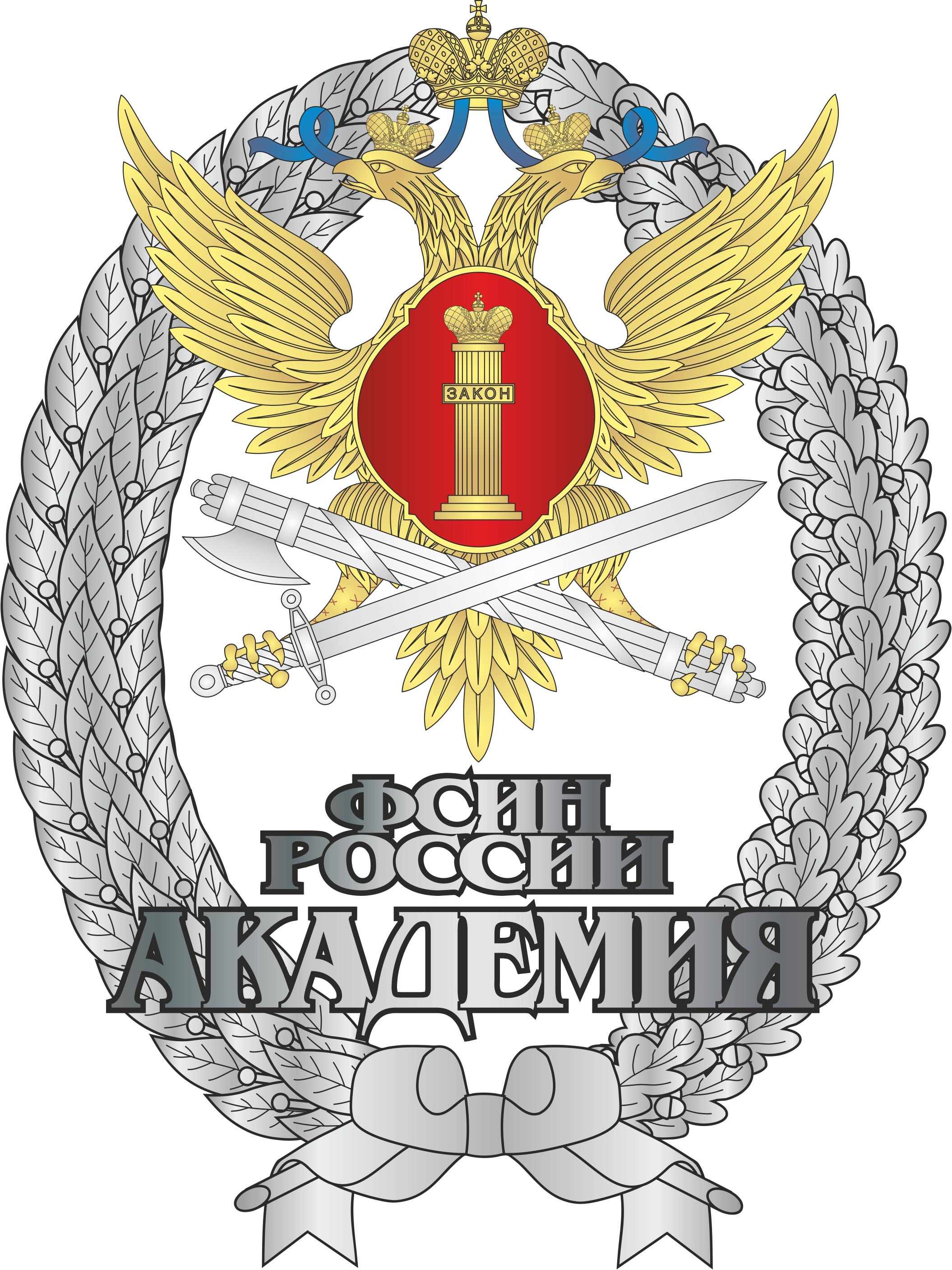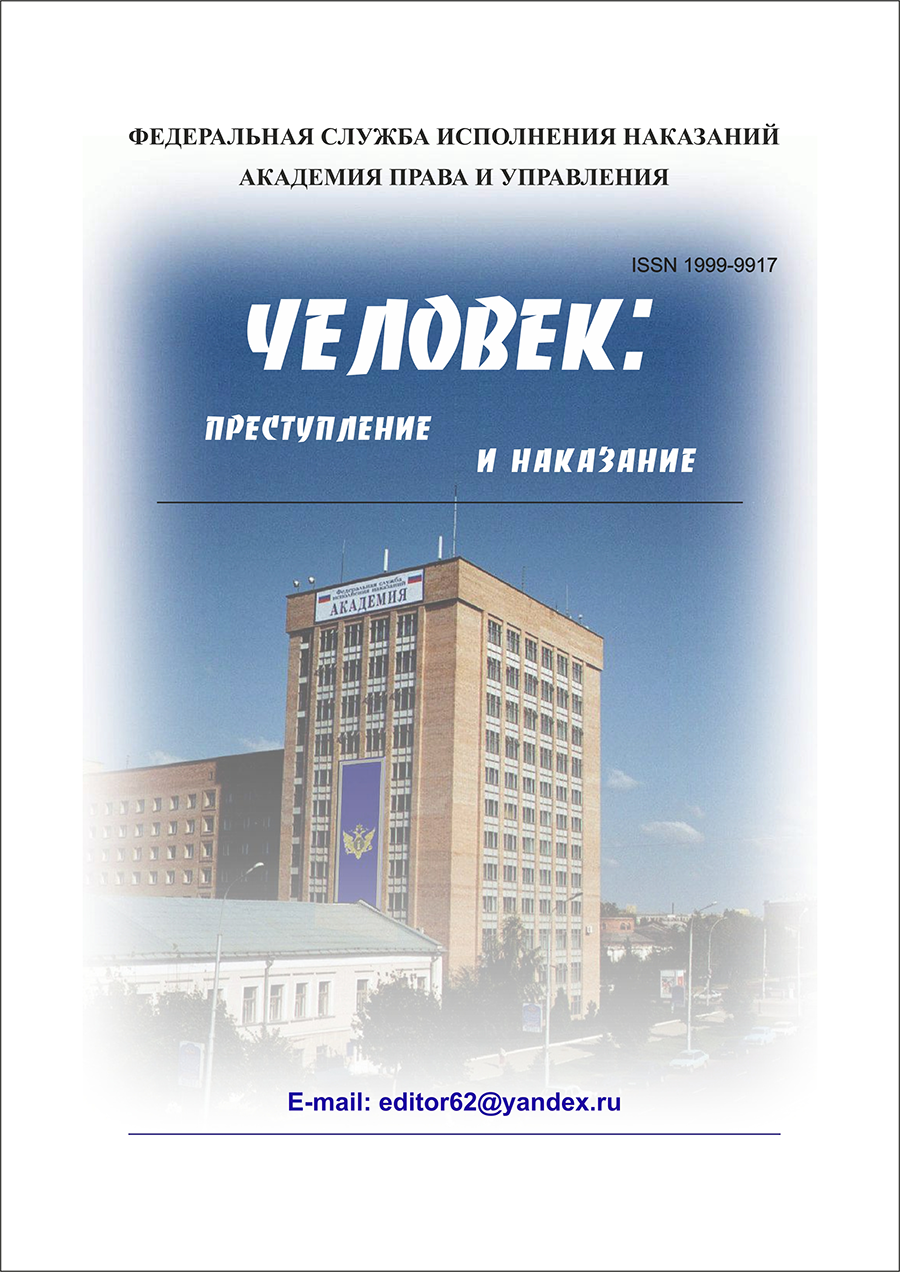Russian Federation
UDC 343.847
As a result of the conducted research, it was found that the measures taken in the Russian Federation for the purpose of adaptation and re-socialization of former convicts are insufficient for the following reasons. Firstly, the psychological and educational work carried out with convicts is ineffective due to the lack of trust among the latter in the staff of the psychological service. Secondly, the specialties that a convict can master in a correctional institution are not relevant. Former convicts, being livestock breeders, turners and seamstresses, cannot represent a competitive force in the labor market. Thirdly, about a quarter of all crimes are committed by previously convicted persons. These facts indicate that the adoption of the Federal Law "On Probation in the Russian Federation" is a timely measure that can prevent further recidivism of crimes and adapt former convicts to life in society. However, the text of this law excludes the concept of "pre-penitentiary probation". However, it is necessary because: 1) a small number of citizens can afford to conclude an agreement with a lawyer due to the high cost of his services; 2) courts, choosing a measure of restraint on particularly serious articles, most often decide to detain the accused, while the accused cannot fully realize their legitimate interests and build a line of defense together with their lawyers.
probation, penitentiary system, accused, lawyer, resocialization, adaptation, educational work, psychological work
1. Antonjan, E. A. 2018, ‘Compulsory measures of educational influence: problems of appointment and application’, Lex Russica, iss. 9, pp. 112-118. DOI: https://doi.org/10.17803/1729-5920.2018.142.9.112-118; EDN: https://elibrary.ru/YAQPWX
2. Luzgin, S. A. 2021, ‘Probation Service of the Federal Penitentiary Service: Scientific and practical approaches to the formation and organization of activities’, in V International Penitentiary Forum “Crime, Punishment, Correction” (dedicated to the Year of Science and Technology in the Russian Federation in 2021): collection of abstracts of speeches and reports of participants (Ryazan, November 17_19 2021), in 9 vols, vol. 5, part 2, pp. 344-347, Academy of the FPS of Russia, Ryazan. EDN: https://elibrary.ru/DRGYEE
3. Dvorjanskov, I. V. 2021, ‘Prospects for the introduction of the probation system in Russia’, in V International Penitentiary Forum “Crime, Punishment, Correction” (timed to coincide with the Year of Science and Technology in the Russian Federation in 2021): collection of abstracts of speeches and reports of participants (Ryazan, November 17-19, 2021), in 9 vols, vol. 1, pp. 114-120, Academy of the FPS of Russia, Ryazan. EDN: https://elibrary.ru/JACOBK
4. Ol'hovik, N. V. 2011, ‘Problems of execution of criminal penalties’, Criminological Journal of the Baikal State University of Economics and Law, iss. 2(16), pp. 54-60. EDN: https://elibrary.ru/NUDSNH
5. Ovchinnikova, N. A. 2012, ‘Prospects for the formation of the probation service in the Russian Federation: an international Legal aspect’, in Actual problems of the activities of the UIS units: a collection of materials of the All-Russian Scientific and Practical Conference (Voronezh, June 6-7, 2012), pp. 379-384, Scientific book, Voronezh. EDN: https://elibrary.ru/XGAITD
6. Sarafannikova, L. A. 2020, ‘Institute of Probation in the Russian Federation’, Scientific and practical research, iss. 11-5(34), pp. 10-12. EDN: https://elibrary.ru/YZGGPV
7. Konin, V. V. 2013, ‘The right to qualified legal assistance and its accessibility: some theoretical issues’, Lawyer, iss. 6, pp. 9-16.
8. Arsent'eva, S. S. 2020, ‘Limit the use of a preventive measure in the form of detention under the power of the legislator’, Bulletin of Chelyabinsk State University, Law Series, vol. 5, iss. 3, pp. 36-39. DOI: https://doi.org/10.47475/2618-8236-2020-15306; EDN: https://elibrary.ru/TCTOVL
9. Smirnov, A. M. 2013, ‘Characteristics of convicted men serving sentences in correctional colonies of Russia’, The penal system: law, economics, management, iss. 6, pp. 16-24. EDN: https://elibrary.ru/REDZOL
10. Smirnov, A. M. 2013, ‘Lynching in places of deprivation of liberty: characteristics and preventive measures’, Man: crime and punishment, iss. 2(81), pp. 64-66. EDN: https://elibrary.ru/QZWQEV
11. Grishko, A. Ja. 2011, ‘Criminological and socio-psychological roots of crime in modern Russia’, Applied legal psychology, iss. 3, pp. 13-17. EDN: https://elibrary.ru/OFXGKB
12. Antipina, M. A. & Zinnurova, O. I. n.d., ‘Features of conflicts among convicts and their regulation in places of deprivation of liberty’, in Materials of the V International Student Scientific Conference “Student Scientific Forum”, viewed 2 January 2023, https://scienceforum.ru/2013/ article/2013008962.
13. Poznyshev, S. V. 1915, Essays on prison studies, 2nd edn, G. A. Leman i B. D. Pletnev, Moscow.









